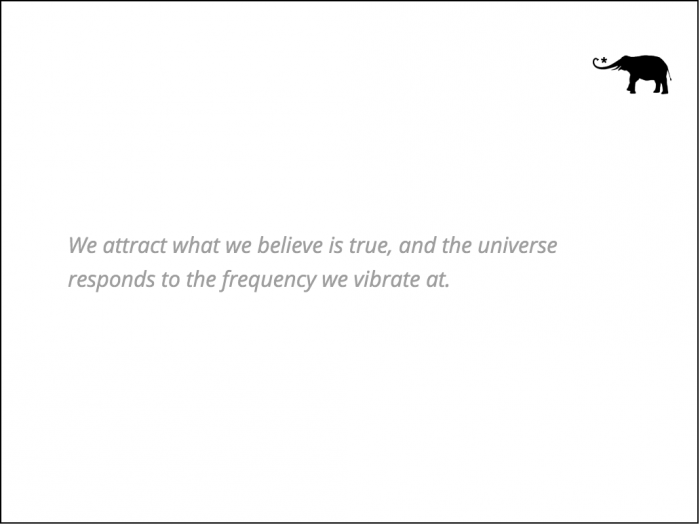View this post on Instagram
It may just be a thought, but a thought that speaks volumes, and saying it out loud sounds as bad as it is.
It shows that negative self-talk is a “thing” and is a form of self-abuse and self-sabotage.
Self-sabotage occurs when we undermine our own progress whether consciously or unconsciously. This can be in any aspect of our lives where our mind wants one thing but our actions demonstrate the opposite.
We are all worthy of what we want. I’m worthy of an amazing life, but I’m the one placing obstacles in my own way, and like the rock of Gibraltar, it’s right there—impossible to miss, yet there it is, beautifully disguised with an invisibility cloak, which I’ve placed around it.
It’s funny how things can be right in front of us in plain sight, but we are oblivious to it as we tiptoe around it like it’s not there at all. This is how we suppress and deny ourselves of what we truly want and deserve in life.
How many of us grew up in households where we always had to think of others?
We had to place the needs of others above our own because we were made to believe it’s the right thing to do, and in doing so, we were faced with an authoritative figure who would say, “Stop what you are doing and help your sister; your project can wait.” Or they would acknowledge the importance of your time by saying, “I know you are busy, but you need to make time.”
We all want to be of service and help others, as it makes us feel good, and, in return, it feels like we are making a difference in the world or in someone’s life, but there’s also a difference between doing it on our own accord and someone demanding us to be of service, forcing us to perform a task that makes us feel resentful and unworthy of our own needs and wants.
Step 1: we have to acknowledge that what we want is in fact important and not a selfish act and explore the reasons why we are depriving ourselves from having what we truly want.
Popular examples of self-sabotage are fear of success or fear of intimacy, so we push people away because we’re afraid of getting hurt.
“I’m not worth it” is one of the many deeply ingrained core beliefs that something is true when, in fact, I know on a surface level it’s false, but like an onion, we have many layers of belief systems and many of them are connected to our fight-or-flight instincts, and they work hand in hand.
Our flight instinct may kick in, and the overwhelming feeling of just wanting to take flight is our subconscious way of saying, “I’m keeping you safe.” So, we hide from the world through possibly telling ourselves:
>> I’m unlovable.
>> If I love someone, they’ll leave me.
>> The world is a dangerous place.
>> Everything is my fault.
>> You have to work hard to become a success.
>> I’m not worth it.
When a bad habit serves us, there’s a hidden benefit to why we hold onto these beliefs so we must ask:
>> What would I lose or miss out on if I…(fill in the blank)?
>> How does this belief make me a better person?
>> What’s the benefit of holding onto the belief?
>> What’s the worst thing that can happen to me if…(fill in the blank)?
We attract what we believe is true, and the universe responds to the frequency we vibrate at. Our energy also fluctuates throughout the day as we shift our awareness and perspective from one task to another, one thought to another; it all ebbs and flows.
If I were to believe that I’m unworthy, I will also attract people and circumstances that will reflect and mirror this back to me. Think about that for a moment and where you are in life right now. Who and what are you attracting? Check in with yourself and how you’re feeling.
I can give an example of instant karma, and I’m sure many of us have had an encounter with her. (I’ll call karma a her because let’s face it, karma is a b*tch.) But to get back to my example, I may just be walking the dog, and my thoughts would wander back to the awful day I had at work, which resulted in having an argument with my manager, and in this moment, I am feeling the anger and frustrations as I am replaying the entire scene in my mind while thinking, “I hope he (the manager) breaks a leg.”
My energy in that moment is not really high vibrational. And boom, before I know it, karma arrived and matched my vibrational state of mind and body, and I tripped over the tiniest of bumps in the road and went flying, legs in the air, and the dog went for flying lessons too, before I touched down and kissed the pavement with a loud “thud.”
That’s what we call instant karma.
Do you see what I mean about it’s not all about our actions, but our thoughts? Stay in the moment and be aware of your feeling state. If we had to practice what we think out loud all day, every day, we will be utterly shocked to hear what we think of others and ourselves.
Step 2: become aware of what your beliefs are.
It’s hard to face the facts, and I had no choice but to acknowledge that I was disempowering myself. I had to change the belief I was holding onto in order to see my worth and change my thoughts. But how does one do that?
Daily, we find ourselves preoccupied and in a “zombie” like state, or that’s what I call it—where we live life without really living in the moment. We’re not aware of our actions and behaviours, and being so busy means we can’t recall what our first thoughts were in the morning or what we have said to the people we have spoken to during the day because our thoughts were everywhere but with “us” and the task at hand.
When we see, feel, listen, and take in every aspect of our environment, we become somehow enlightened, as we become aware of what we say, how we say it, and what we are thinking.
I always teach that we cannot believe one thing and want another. For example, “I wish to win the lottery,” but also think, “It will never happen.” The universe won’t bring to us what we desire when those two things are in conflict. So, when a belief is recognized, we may want to justify having it as if it’s okay to undermine or undercut ourselves all the time as if it doesn’t matter. But it does matter!
Experimenting with this, I could see that this belief, among others, was much connected to my state of mind, as I was attracting situations and people into my environment that I consciously didn’t want, but unconsciously attracted.
I also noticed people will match my energy, so if I was low, they would often be upset or cause arguments with me; simply, meeting me where I was at, but when I changed my focus and energy, the opposite would occur—people would be more loving, friendly, and encouraging.
So, what I’ve learned was to take a deep breath, as it resets the nervous system, and make a conscious choice to shift focus to feeling better and do something that I want to do that will improve my life instead of doing what others want—I do the things that will make me feel worthy, and I keep reminding myself that it’s not a selfish act.
I know that many are feeling low at this time where physical touch, love, and seeing friends and family has not been possible.
We are alone if we want to be, and there are many who will be here for us if we want them to be.
In love and service.
~







Read 6 comments and reply